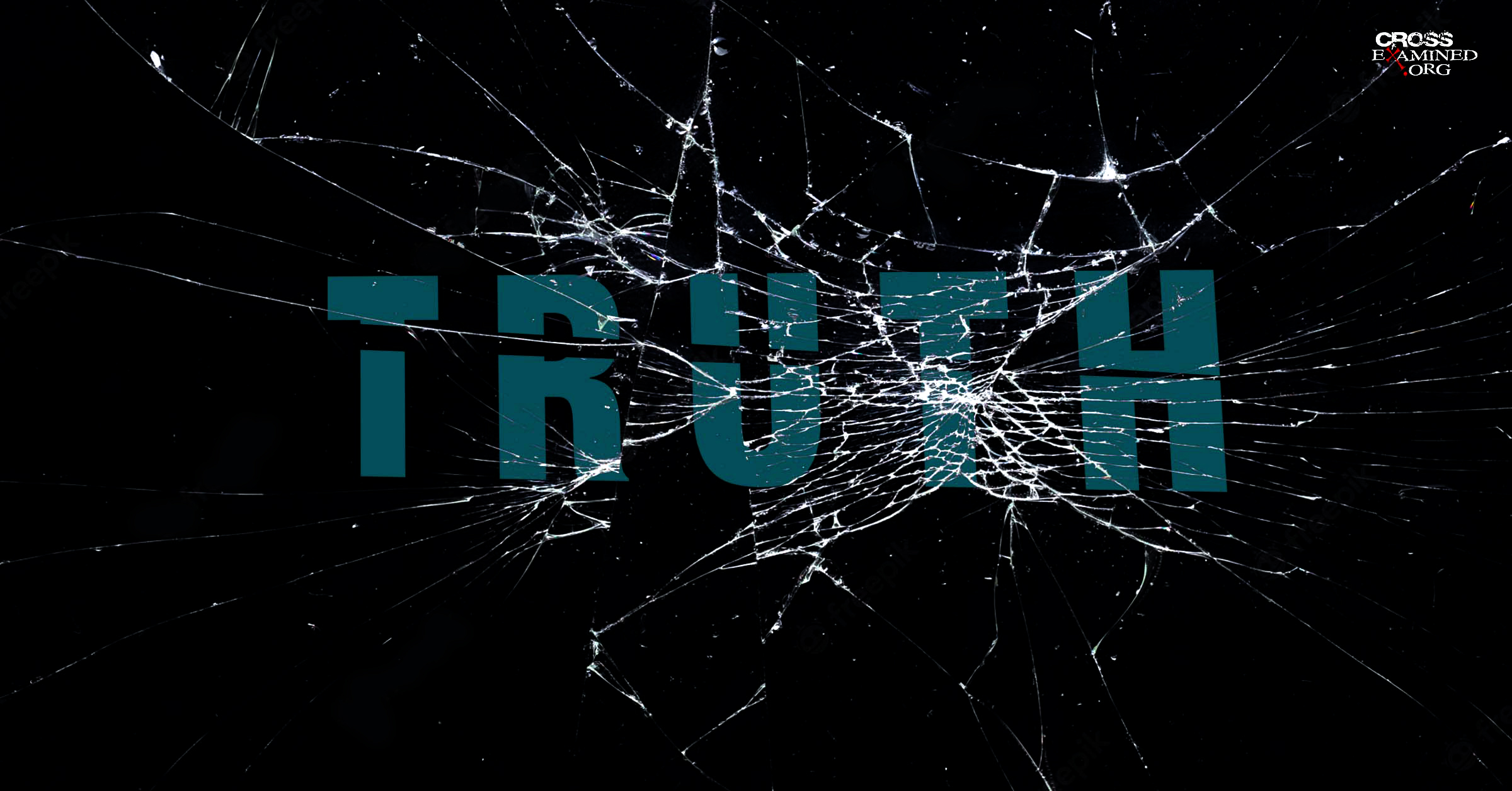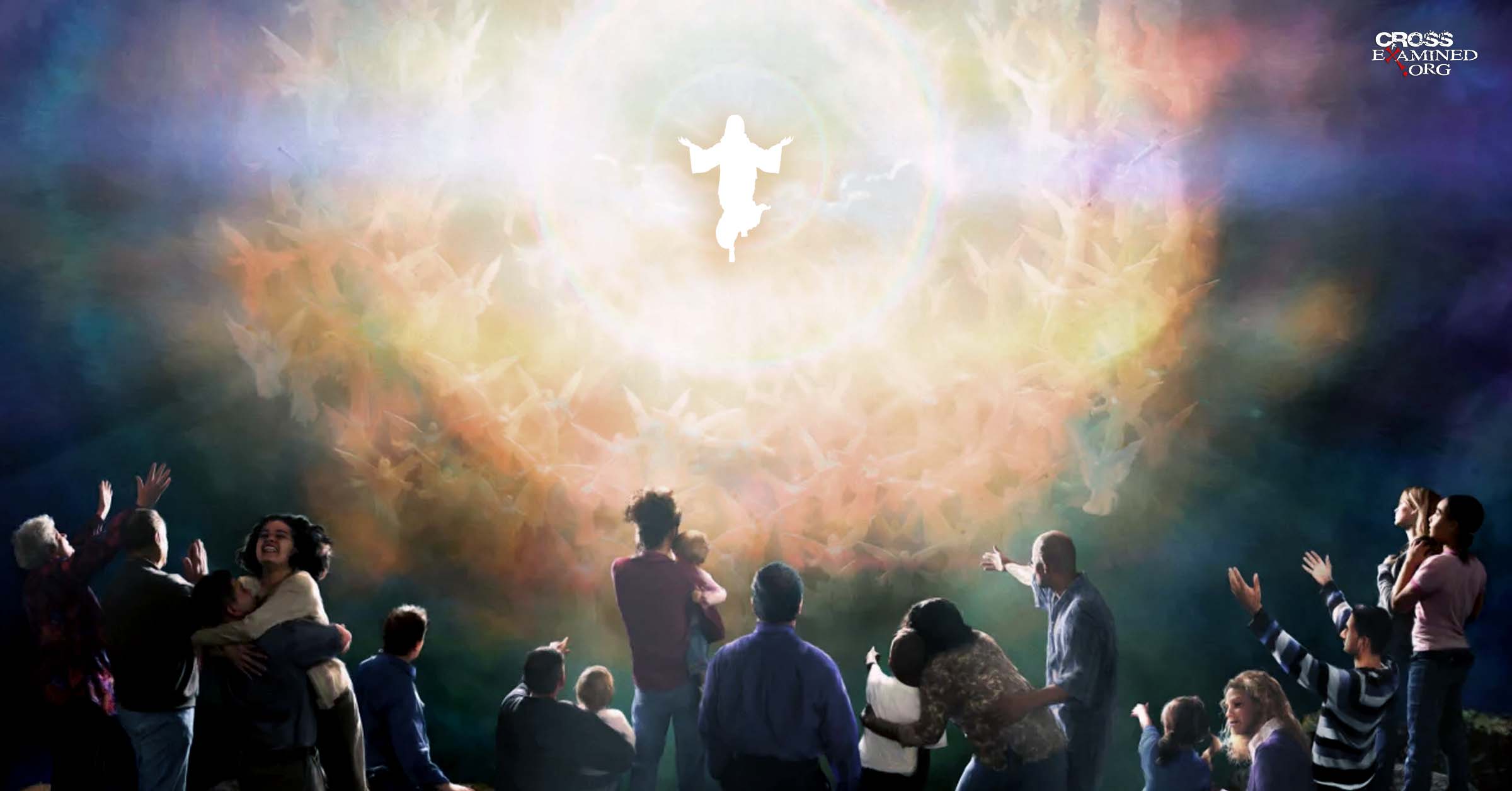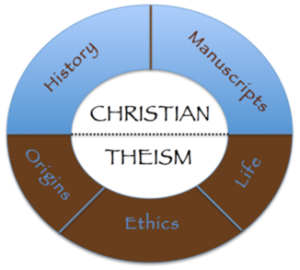By Jonathan McLatchie
The principle of undesignedness was first identified by the famed Christian philosopher William Paley (1743-1805), in his book Horae Paulinae. Therein, he highlighted example after example of undesigned integrations between the epistles of Paul and the Acts of the Apostles. The principle of undesignedness refers to cases where two or more sources dovetail with each other in a manner that cannot be attributed to the design of the author. In 1850, J.J. Blunt published his book Undesigned Scriptural Coincidences, in which he took Paley’s argument further, documenting examples in the Old Testament, as well as between the gospels, and between the gospels, Acts, and Josephus. The principle of undesignedness is a forgotten but brilliant argument which can be used to corroborate Biblical history. In this article, I want to consider a few examples of undesigned coincidences in the Old Testament. In a subsequent article, I will discuss examples of undesigned coincidences in the New Testament.
Why Does Ahithophel Turn on David?
2 Samuel 15 details the story of King David’s son Absalom conspiring against his own Father. In verses 7-12, we read,
And at the end of four years Absalom said to the king, “Please let me go and pay my vow, which I have vowed to the Lord, in Hebron. For your servant vowed a vow while I lived at Geshur in Aram, saying, ‘If the Lord will indeed bring me back to Jerusalem, then I will offer worship to the Lord.’” The king said to him, “Go in peace.” So he arose and went to Hebron. But Absalom sent secret messengers throughout all the tribes of Israel, saying, “As soon as you hear the sound of the trumpet, then say, ‘Absalom is king at Hebron!’” With Absalom went two hundred men from Jerusalem who were invited guests, and they went in their innocence and knew nothing. And while Absalom was offering the sacrifices, he sent for Ahithophel the Gilonite, David’s counselor, from his city Giloh. And the conspiracy grew strong, and the people with Absalom kept increasing.
In verse 12, Absalom sends for Ahithophel, David’s counselor. Who is this man, Ahithophel? According to 2 Samuel 16:23:
Now in those days the counsel that Ahithophel gave was as if one consulted the word of God; so was all the counsel of Ahithophel esteemed, both by David and by Absalom.
Ahithophel, then, was the most trusted adviser to King David. Why, then, did Absalom count on Ahithophel to join him in conspiring against the King?
In 2 Samuel 23, in a completely unrelated part of the text, we have an important clue. Verses 24-39 list the thirty-seven body guards of King David. In verse 39, we have a familiar name – Uriah the Hittite, the husband of Bathsheba. Another individual mentioned is Eliam the son of Ahithophel the Gilonite (verse 34). This means that Ahithophel’s son was a colleague of Uriah the Hittite.
It gets even more interesting when we look over at 2 Samuel 11, in which we read of David’s adultery with Bathsheba and his murder of her husband, Uriah the Hittite. Here is what we read in verses 2-3:
It happened, late one afternoon, when David arose from his couch and was walking on the roof of the king’s house, that he saw from the roof a woman bathing; and the woman was very beautiful. And David sent and inquired about the woman. And one said, “Is not this Bathsheba, the daughter of Eliam, the wife of Uriah the Hittite?
Thus, it appears that Bathsheba was the granddaughter of Ahithophel, David’s counselor, and her father Eliam himself was among the King’s body guards along with Bathsheba’s husband Uriah. This then explains why Absalom in chapter 15 expected Ahithophel to be ready to conspire against King David and why Ahithophel joined Absalom’s rebellion. He wanted revenge on David for what he had done to Bathsheba and Uriah.
But it gets even more interesting. Flip over to chapter 16 and verses 20-22:
Then Absalom said to Ahithophel, “Give your counsel. What shall we do?” Ahithophel said to Absalom, “Go in to your father’s concubines, whom he has left to keep the house, and all Israel will hear that you have made yourself a stench to your father, and the hands of all who are with you will be strengthened.” So they pitched a tent for Absalom on the roof. And Absalom went in to his father’s concubines in the sight of all Israel.
Why do they pitch a tent for Absalom on the roof so that he can sleep with his father’s concubines? It was on the roof that David’s eye first caught Bathsheba bathing, resulting in his adulterous affair and his murder of her husband Uriah. Her grandfather Ahithophel then seeks revenge, and so encourages Absalom to sleep with his father’s concubines on the roof of the palace.
Now, note that it was only by putting together different, seemingly unrelated, parts of the text that we were able to arrive at these explanations. Nowhere in Scripture is it explicitly spelled out that Ahithophel was the grandfather of Bathsheba. Rather, one has to do detective work in order to see beneath the surface what exactly is going on here.
This is not the sort of pattern that one might expect in stories of myth and legend. Rather, it is the hallmark of truth.
Example #2: Hezekiah’s Treasury
For our second example, turn over to Isaiah 38, in which we read of King Hezekiah’s illness and recovery. In Isaiah 39, we have an account of envoys coming from Babylon to congratulate King Hezekiah on his recovery. There is a parallel account of those events in 2 Kings 20 which appear to be textually dependent on Isaiah (or vice versa). Here is the account in Isaiah 39:1-2:
At that time Merodach-baladan the son of Baladan, king of Babylon, sent envoys with letters and a present to Hezekiah, for he heard that he had been sick and had recovered. And Hezekiah welcomed them gladly. And he showed them his treasure house, the silver, the gold, the spices, the precious oil, his whole armory, all that was found in his storehouses. There was nothing in his house or in all his realm that Hezekiah did not show them.
Thus, we learn, King Hezekiah proudly showed the Babylonian envoys his great riches in his treasure house. Hezekiah’s pride brings upon him a prophecy of judgment. In verses 3-7, we read:
Then Isaiah the prophet came to King Hezekiah, and said to him, “What did these men say? And from where did they come to you?” Hezekiah said, “They have come to me from a far country, from Babylon.” He said, “What have they seen in your house?” Hezekiah answered, “They have seen all that is in my house. There is nothing in my storehouses that I did not show them.” Then Isaiah said to Hezekiah, “Hear the word of the Lord of hosts: Behold, the days are coming, when all that is in your house, and that which your fathers have stored up till this day, shall be carried to Babylon. Nothing shall be left, says the Lord. And some of your own sons, who will come from you, whom you will father, shall be taken away, and they shall be eunuchs in the palace of the king of Babylon.
King Hezekiah selfishly is relieved at the prophecy, thinking to himself that at least “There will be peace and security in my days” (verse 8).
Both the account of this event that we read in Isaiah and that in 2 Kings imply that Hezekiah fell ill at the time of the invasion by Sennacherib of Judah and before the outcome of that invasion. In both accounts, God promises Hezekiah that he will live and that God will deliver the city from the Assyrians (Isaiah 38:6; 2 Kings 20:6). Thus, the envoys arrived from Babylon after his recovery, and after the danger from Assyria had been averted.
Now let’s consider another text in 2 Kings 18:13-16:
In the fourteenth year of King Hezekiah, Sennacherib king of Assyria came up against all the fortified cities of Judah and took them. And Hezekiah king of Judah sent to the king of Assyria at Lachish, saying, “I have done wrong; withdraw from me. Whatever you impose on me I will bear.” And the king of Assyria required of Hezekiah king of Judah three hundred talents of silver and thirty talents of gold. And Hezekiah gave him all the silver that was found in the house of the Lord and in the treasuries of the king’s house. At that time Hezekiah stripped the gold from the doors of the temple of the Lord and from the doorposts that Hezekiah king of Judah had overlaid and gave it to the king of Assyria.
Wait a minute. So Hezekiah has just made this humiliating tribute to the king of Assyria, having had to offer him “all of the silver that was found in the house of the Lord and in the treasures of the king’s house” and even being reduced to stripping the gold from the doors of the temple and from the doorposts. How then was he able not long after this humiliation to show all of his riches of his treasury to the Babylonian envoys? One could write it off as a contradiction, or we could dig deeper to find the solution – and in so-doing uncover another remarkable undesigned coincidence.
For the solution, let us now turn to 2 Chronicles. 2 Chronicles contains the account of the destruction of Sennacherib’s army by the miraculous intervention of the angel of the Lord (which is also found in Isaiah and 2 Kings albeit in different wording and terminology from the account in 2 Chronicles). After these events, 2 Chronicles throws in a unique detail in 32:23:
And many brought gifts to the Lord to Jerusalem and precious things to Hezekiah king of Judah, so that he was exalted in the sight of all nations from that time onward.
Therein lies our answer. This explains how Hezekiah came to have a full treasury to show off to the Babylonian envoys by the time the Babylonians learned of his recovery. No mention is made of the humiliating tribute to the Assyrians in 2 Chronicles. 2 Kings does mention the humiliating tribute and him showing off his treasury shortly thereafter to the Babylonian envoys, but makes no mention of the gifts that replenished the treasury. Isaiah makes no mention of the tribute or the gifts but mentions his display of his great wealth.
This undesigned coincidence corroborates the historical veracity of these events and also strongly suggests that one of our authors (i.e. either Isaiah or the author of 2 Kings) had access to the court of Hezekiah, and thus knew about the visit of the Babylonian envoys.
Example #3: The Uniformity of Expressive Silence
Another sort of undesignedness can sometimes arise when we examine cases where information is assumed by the author although not explicitly spelled out – this may be called the uniformity of expressive silence – repeated omissions that have a meaning. Here, I give an example of this from the book of Genesis.
Genesis 24 narrates the story of Abraham’s servant’s journey to the city of Nahor in Mesopotamia in search of a wife for Isaac. He encounters “Rebekah, who was born to Bethuel the son of Milcah, the wife of Nahor, Abraham’s brother,” who “came out with her water jar on her shoulder.” Abraham’s servant requests a drink of water from the jar. Rebekah gives him some water and also some for his camels to drink. In verses 22-28, we read what happened next:
When the camels had finished drinking, the man took a gold ring weighing a half shekel, and two bracelets for her arms weighing ten gold shekels, and said, “Please tell me whose daughter you are. Is there room in your father’s house for us to spend the night?” She said to him, “I am the daughter of Bethuel the son of Milcah, whom she bore to Nahor.” She added, “We have plenty of both straw and fodder, and room to spend the night.” The man bowed his head and worshiped the Lord and said, “Blessed be the Lord, the God of my master Abraham, who has not forsaken his steadfast love and his faithfulness toward my master. As for me, the Lord has led me in the way to the house of my master’s kinsmen.” Then the young woman ran and told her mother’s household about these things.
The point to which I wish to draw attention is the consistent insignificance of Bethuel throughout the narrative. Bethuel was the father of Rebekah, and thus it is reasonable to expect that the terms of a marriage contract would be stipulated by him. Indeed, in the case of Laban in Genesis 29 in regards to his disposing of a daughter in marriage – a daughter who, like Rebecca, had brothers (see Genesis 31:1) – the active party throughout the account is the father, Laban.
Contrast this with the case of Bethuel in our current text in Genesis 24. Abraham’s servant had asked her, “Please tell me whose daughter you are. Is there room in your father’s house for us to spend the night?” (verse 23). We are then told, however, that “the young woman ran and told her mother’s household about these things,” (Genesis 24:28). Notice we are not told that she ran to her father’s household (as Rachel did in Genesis 29:12 after meeting Jacob), but rather she ran to her mother’s household. Verse 29 further informs us, “Rebekah had a brother whose name was Laban. Laban ran out toward the man, to the spring.”
After having been invited into the house by Laban, the servant explains the purpose of his visit (verses 34-49). In verse 50, we read, “Then Laban and Bethuel answered and said…” The mention of Bethuel constitutes the only proof that he was alive at the time of this incident. It is agreed that the servant may “take her and go, and let her be the wife of your master’s son, as the Lord has spoken” (verse 51).
The servant then gives gifts, we are told, “to Rebekah” and “to her brother and to her mother,” (verse 53). Curiously, no gifts are given to Bethuel, it would seem. In verse 55, we read, “Her brother and her mother said, ‘Let the young woman remain with us a while, at least ten days; after that she may go.’” It would seem expected that such a proposal would be made by her father. Instead, it is made by her mother and brother. After inquiring of Rebekah, it is decided that she would leave with the servant after all (verses 58-61).
Abraham’s son Isaac marries Rebekah, and together they have a son called Jacob (Genesis 25:26). After Jacob deceives his father Isaac into blessing him rather than Esau, the eldest (Genesis 27), Rebekah counsels Jacob to flee because Esau planned to kill him, Along his journey, he encounters some shepherds and asks them “Do you know Laban the son of Nahor?” (Genesis 29:5). This is strange, because Laban was the son of Bethuel and only the grandson of Nahor. Yet, again, we see Bethuel passed over as an individual considered of no importance among his own family. Bethuel’s own son, therefore, is identified by the name of his grandfather rather than his father.
We cannot state the specific circumstances surrounding Bethuel or explain exactly why he was a man considered of no note. Who knows? Perhaps he was considered incapable of managing his own affairs due to age or imbecility. Whatever the reason, Scripture does not tell us. However, the lack of concurrence in a positive fact but silent presumption of that same fact suggests that the author knew something more than we do about the circumstances than he discloses in his account thereof. It is the sort of pattern we expect in real history, but not the sort of pattern we should expect from works of fiction.
Conclusion
Many further examples could be given in the Old Testament, but I hope that these three examples suffice to show how this argument can be wielded to corroborate Biblical history. In part 2, we will consider examples of undesigned coincidences in the New Testament.
Recommended resources related to the topic:
Stealing From God by Dr. Frank Turek (Book, 10-Part DVD Set, STUDENT Study Guide, TEACHER Study Guide)
How Philosophy Can Help Your Theology by Richard Howe (DVD Set, Mp3, and Mp4)
_____________________________________________________________________________________________________________________________________________________
Dr. Jonathan McLatchie is a Christian writer, international speaker, and debater. He holds a Bachelor’s degree (with Honors) in forensic biology, a Masters’s (M.Res) degree in evolutionary biology, a second Master’s degree in medical and molecular bioscience, and a Ph.D. in evolutionary biology. Currently, he is an assistant professor of biology at Sattler College in Boston, Massachusetts. Dr. McLatchie is a contributor to various apologetics websites and is the founder of the Apologetics Academy (Apologetics-Academy.org), a ministry that seeks to equip and train Christians to persuasively defend the faith through regular online webinars, as well as assist Christians who are wrestling with doubts. Dr. McLatchie has participated in more than thirty moderated debates around the world with representatives of atheism, Islam, and other alternative worldview perspectives. He has spoken internationally in Europe, North America, and South Africa promoting an intelligent, reflective, and evidence-based Christian faith.
Original Blog Source: https://bit.ly/3PRQqMQ












